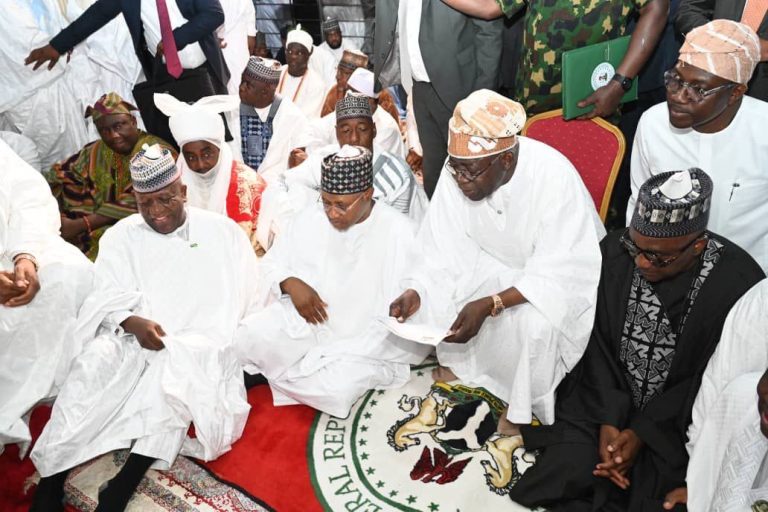The recent wedding of the son of a prominent Nigerian senator unfolded as a grand spectacle, steeped in opulence and fervor. Yet beneath the glamour of this joyous occasion lay a story that revealed the stark social divides of our society.
The Hausa proverb “Biki na farar kaza, wa ya zo da ungulu kai ba kallabi?”—loosely translated as “Who invited a bare-headed vulture to a white chicken festival?”—offers a fitting lens through which to examine the contrasts of that gathering.
What was meant to be a celebration of love and unity quickly became a stage for social stratification. The senator’s family, draped in resplendent attire befitting their status, embodied the height of privilege. Their guests—politicians, dignitaries, and power brokers—arrived in luxury, each personage reinforcing the aura of wealth and influence.
Outside the glittering venue, however, a different crowd gathered. Drawn by the allure of the event, ordinary people—“the low-class” in society’s harsh categorization—stood at the gates, hoping to glimpse the spectacle or feel some part of the joy. But their presence, instead of blending into the celebration, was treated as an intrusion.
Here lies the essence of the proverb. The vulture, symbolizing the uninvited, becomes a metaphor for those who dared to approach a space clearly demarcated for the elite. Their intentions may have been innocent, but their reception was one of rejection and disdain. Security personnel, tasked with preserving the sanctity of the event, treated them with contempt. The laughter and music within only deepened the humiliation of those barred from entry, a harsh reminder of the invisible walls that divide Nigerians along class lines.
This wedding, meant to mark a personal milestone, inadvertently became a mirror reflecting entrenched inequality in our society. Weddings, in our tradition, are supposed to be communal—spaces where joy overflows across boundaries. Yet here, the celebration became a symbol of exclusion.
Equally striking was the apparent indifference of the elite to those outside. For the privileged inside, the event was one of merriment, entitlement, and splendor. For those outside, it was a lesson in social rejection. The disconnect underscored a painful truth: empathy is too often absent in our social relations, and the humanity of the less privileged goes unrecognized.
The humiliation of the “outsiders” was palpable. Their hopeful eyes dimmed into disappointment as every attempt to share in the joy was rebuffed. What should have been a festival of love instead became a silent exhibition of division.
The proverb, then, serves not only as a caution but also as a call to wisdom. Social gatherings—especially those with cultural and communal weight—must be organized with awareness of the diverse society around us. The “white chicken festival” should not be reduced to a stage where some are celebrated and others shunned, but a space that welcomes collective participation.
The Kaduna wedding stands as a poignant reminder of the deep-rooted inequalities shaping Nigeria’s social fabric. It calls on the elite, who control access to these spaces, to rethink the meaning of celebration. True joy comes not from exclusivity but from inclusion—when all, regardless of class, can partake in the moment.
Let us, then, embrace the wisdom of our proverb. Let our gatherings reflect empathy, inclusivity, and unity. For only then can our celebrations rise above division and embody the spirit of community that defines us as a people.


